Publications
Articles, publications, books, tools and multimedia features from the U.S. Institute of Peace provide the latest news, analysis, research findings, practitioner guides and reports, all related to the conflict zones and issues that are at the center of the Institute’s work to prevent and reduce violent conflict.

How a Fractured Myanmar is Navigating U.S.-China Rivalry
As the rivalry between the United States and China intensifies, Southeast Asian countries have been forced to navigate this growing power competition. The challenge has proven formidable even for those with strong governance and stability. For Myanmar — where a civil conflict between the ruling military junta and a loose alliance of resistance groups recently entered its fourth year — developing a cohesive approach to navigating U.S.-China competition might seem unattainable and unimportant in the current moment.

Ce qu'un gouvernement de transition en Haïti aura besoin pour réussir
Après des semaines de consultations, et au milieu d'une quasi-rupture totale de l'ordre et de la loi en Haïti, un effort dirigé par la Communauté caribéenne (CARICOM) pour créer un nouveau conseil de gouvernance de transition pourrait être sur le point d'être achevé. La mise en place du conseil permettrait l'entrée d'une force de sécurité multinationale qui pourrait ensuite se joindre à la police nationale haïtienne pour rétablir l'ordre. Certains ont suggéré l'inclusion de "facilitateurs" pour la nouvelle force de sécurité - soutien aérien, drones, renseignement. Mais pour gagner la confiance du peuple haïtien, le nouveau conseil de gouvernance aura besoin de ses propres "facilitateurs" populaires, d'un moyen systématique d'inclure de nombreux autres secteurs de la société haïtienne qui sont actuellement ignorés ou délibérément exclus de la gouvernance.

What a Transitional Government in Haiti will Require to Succeed
After weeks of consultations, and amidst a near total breakdown of law and order in Haiti, a Caribbean Community (CARICOM)-led effort to create a new transitional governing council may be nearing completion. The council’s establishment would allow for the entry of a multinational security force that would then be able to join with the Haitian National Police and restore order. Some have suggested the inclusion of “enablers” for the new security force — air support, drones, intelligence. But to gain the trust of the Haitian people, the new governing council will need its own popular “enablers,” a systematic way to include many more sectors of Haitian society that are currently ignored or deliberately excluded from governance.
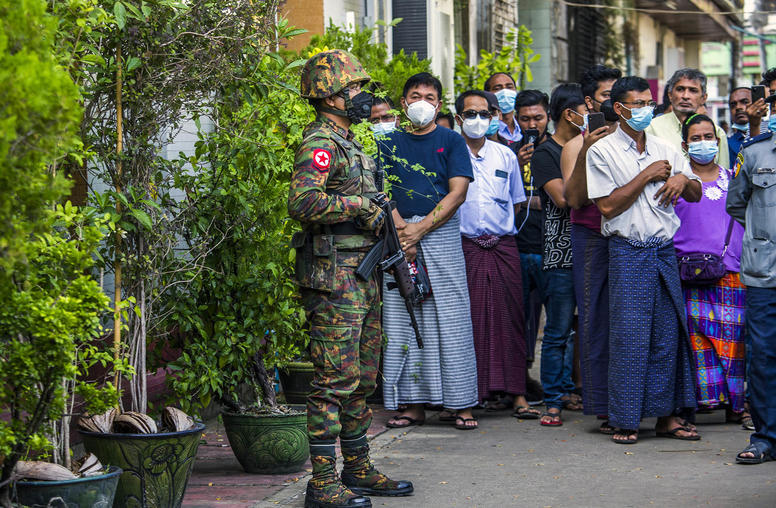
Myanmar’s Military Is Smaller Than Commonly Thought — and Shrinking Fast
International actors seeking to end Myanmar’s civil war make an assumption that on its face appears reasonable: They need to focus on the coup regime for any resolution of the conflict, the thinking goes, because the military is simply too big to fail. But is it? The Sit-Tat, as the armed forces are known, is an opaque institution, shrouded in secrecy, with the question of its actual size a major mystery. As explained below, analysts who lack reliable evidence tend to make estimates of military manpower that are far too high.
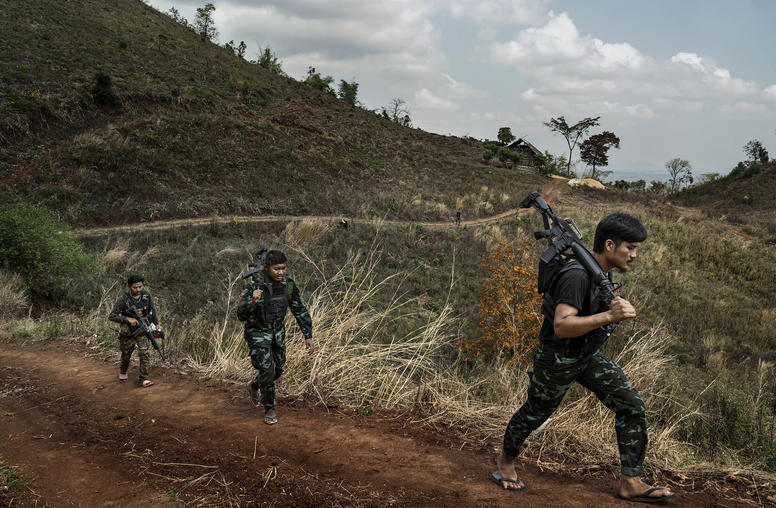
Understanding the People’s Defense Forces in Myanmar
When the People’s Defense Forces (PDFs) first coalesced in Myanmar in 2021, many viewed them as hastily organized groups of young vigilantes who would be quickly overrun by the junta’s military force, known as the Sit-Tat. Instead, the PDFs have grown in size, organization and capability over the last year and half, and now pose a major threat to the junta’s viability. Though they lack heavy equipment, an advanced command structure and international support, the proliferating PDFs have demonstrated remarkable tactical ingenuity and resilience. If they improve their command structure and weaponry, they could help expand territory under resistance control and hasten the junta’s demise.

In Myanmar, Sham Elections Aren’t the Path to Stability
The head of Myanmar’s military junta is talking increasingly about holding national elections next year despite the near certainty that prevailing conditions would make a democratic result impossible. Even if General Min Aung Hlaing was pondering a good-faith effort — which he is not — the country’s political and security situation would likely preclude anything more than a fig leaf outcome. So, the dictator is still mulling whether elections would benefit the regime. Meanwhile, he is laying the groundwork for a sham process to make himself president and cement military rule. Though the nature of these schemes should be obvious to the international community, many view the proposed vote as the most realistic path to stability and democratically elected government. That hope is badly misplaced.
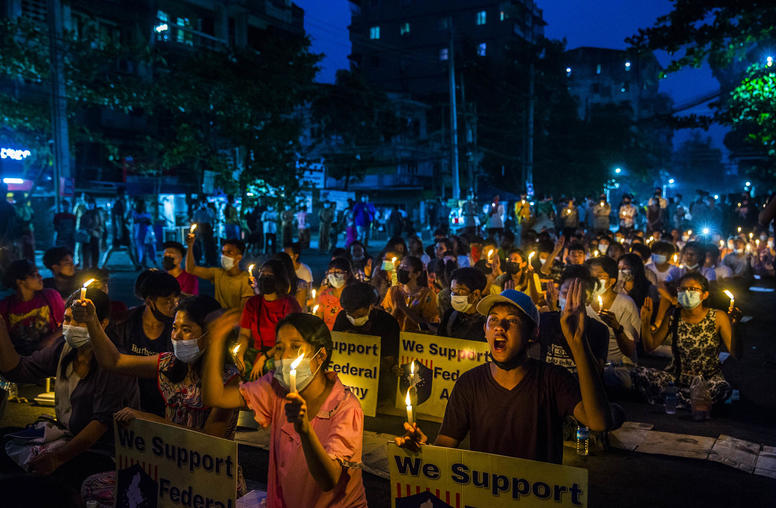
For Myanmar, the Only Path to Stability Runs Through its Web of Resistance Forces
Even as Myanmar’s resistance forces gain ground on the battlefield, much of the international community continues to view the country’s anti-coup movement as fragmented and lacking cohesion. That perception has led some to throw up their hands and disengage from the conflict, while others are considering accepting the junta’s sham elections as a path to restoring stability. Both the premise and conclusion are wrong.
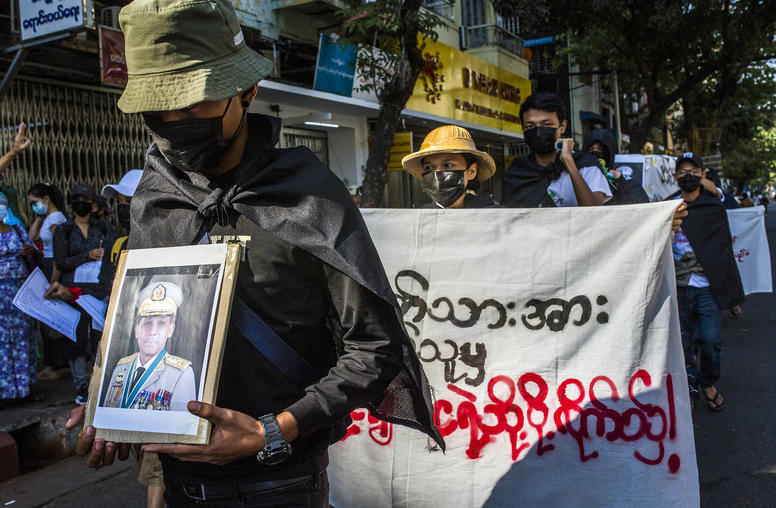
Is Myanmar’s Junta Turning a Corner?
Are conciliatory winds stirring among the leaders of Myanmar’s coup regime, or is the junta engaging in deception and distraction as it struggles on the battlefield against a broad range of resistance forces? The answer is almost certainly the latter. It would not be the first time the ruling generals have sought to stimulate international interest in promoting dialogue solely to enhance their legitimacy abroad.
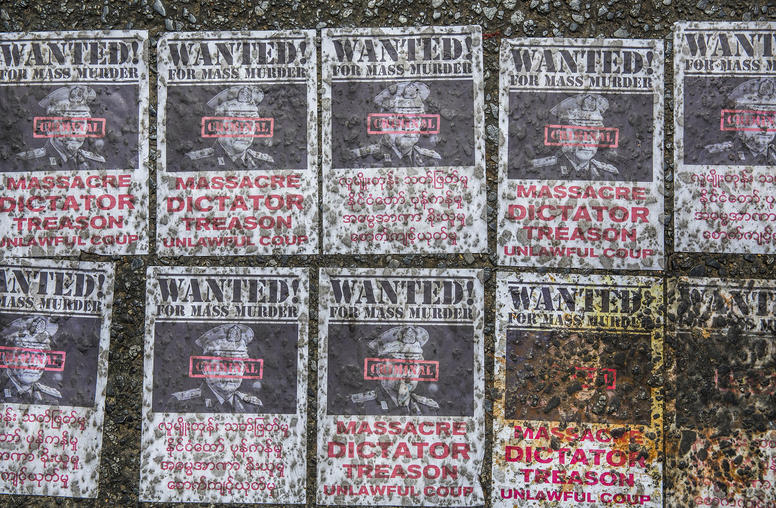
Myanmar’s Criminal Junta Will Do Anything to Consolidate Power
After months of fanfare about holding elections in August 2023, Myanmar’s junta chief, Gen. Min Aung Hlaing, suddenly changed course. On February 1, he extended the junta’s illegitimate rule by another six months acknowledging that the military does not control enough of the country to administer an election. This development represents a setback for those in the international community who had naively believed that sham elections would pave the way to a stable Myanmar.
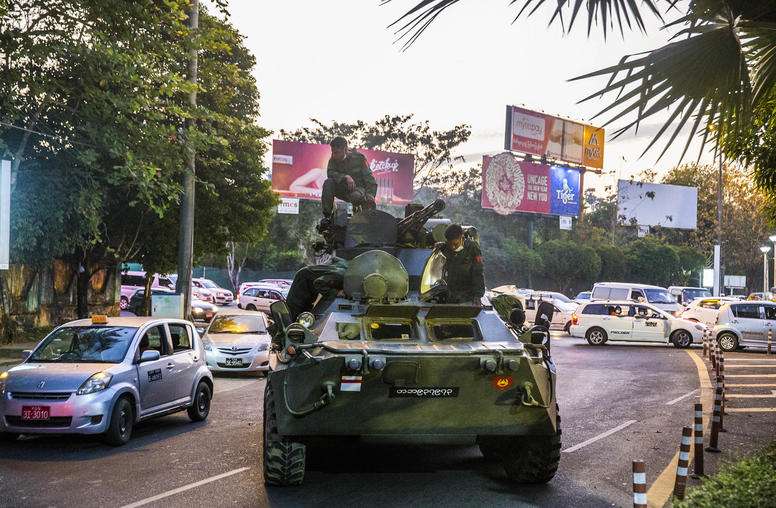
Myanmar’s Fateful Conscription Law
Earlier this month, Myanmar’s ruling junta enacted a compulsory conscription law that had been dormant since 2010. General Guan Maw, a leader of the Kachin Independence Organization, greeted the junta's decision by comparing it to the 2021 military coup: "If February 1, 2021, was the beginning of the end, the law enforced on February 10, 2024, can be said to mark the end of the end.” As popular reactions to the new conscription plan roll out across the country, General Guan Maw’s pronouncement becomes increasingly prescient.